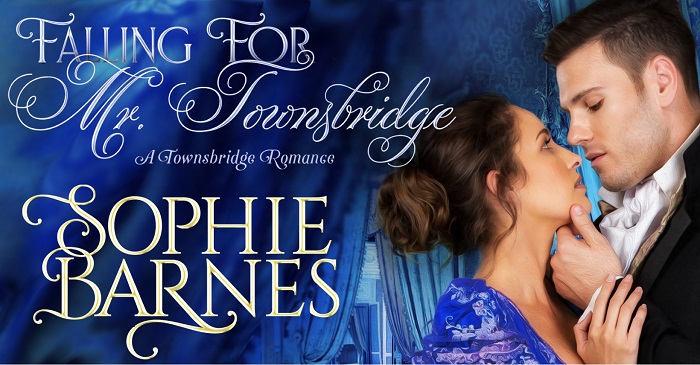 The Friendship List by Susan Mallery
The Friendship List by Susan Mallery Format: eARC
Source: supplied by publisher via NetGalley
Formats available: hardcover, large print, paperback, ebook, audiobook
Genres: Chick Lit, contemporary romance, women's fiction
Pages: 384
Published by HQN Books on August 4, 2020
Purchasing Info: Author's Website, Publisher's Website, Amazon, Barnes & Noble, Kobo, Bookshop.org
Goodreads
[ ] Dance till dawn
[ ] Go skydiving
[ ] Wear a bikini in public
[ ] Start living
Two best friends jump-start their lives in a summer that will change them forever…
Single mom Ellen Fox couldn’t be more content—until she overhears her son saying he can’t go to his dream college because she needs him too much. If she wants him to live his best life, she has to convince him she’s living hers.
So Unity Leandre, her best friend since forever, creates a list of challenges to push Ellen out of her comfort zone. Unity will complete the list, too, but not because she needs to change. What’s wrong with a thirtysomething widow still sleeping in her late husband’s childhood bed?
The Friendship List begins as a way to make others believe they’re just fine. But somewhere between “wear three-inch heels” and “have sex with a gorgeous guy,” Ellen and Unity discover that life is meant to be lived with joy and abandon, in a story filled with humor, heartache and regrettable tattoos.
My Review:
There’s an old saying that the only difference between a rut and a grave are the dimensions. And that’s where this story begins, with best friend Ellen Fox and Unity Leandre both stuck in very long ruts. Very, very long.
The problem with ruts is that they can be surprisingly comfortable down there at the bottom. There’s nothing challenging a person out of their comfort zone. Ruts are easy and change is hard – and frequently painful.
Ellen had sex once, 17 years ago, found herself pregnant and unenthused about the process that got her there and settled into life as a single mother with a tiny bit of help and a whole lot of grief and attitude from her disapproving parents. Now she’s in her mid-30s, her son is at the end of his junior year in high school, and the kid is unwilling to apply to the colleges he really wants to go to because he’s afraid of leaving his poor mother all by herself because she doesn’t have a life outside of her teaching job, her two best friends, and him.
The worst part is that he’s not wrong.
Unity is even more stuck than her bestie. Her young husband died serving his country, but Unity seems to have thrown herself at least partway in that grave with him. She lives in his childhood home, sleeps in his childhood room, and has kept all of his things right where he – and his late parents – left them. She’s either living with his ghost or waiting to die. Or both. All of her friends except Ellen live in the age-restricted community where she does a lot of her home handyman work, and it’s a good thing the place is age-restricted or she’d have moved right in. If she could bring herself to move, that is.
Even Unity’s grief group has had enough of the way that Unity seems to feed her grief instead of letting it heal.
So they challenge each other to step out of their oh-so-comfortable ruts. To stretch their horizons and find out who they still have plenty of time to be before it’s too late. Before the dimensions of their ruts close off at the ends into graves.
Because they are both still young and have way too much life ahead of them to spend it waiting for the end. They’ll just have to make that hard climb over the sides of those ruts.
Escape Rating A-: Ellen and Unity may need to step out of their comfort zones, but in picking up this book I stepped right into mine. This was just the kind of friendship story that this author does so well, and reading it was a terrific pick-me-up for these troubled times.
What was great was that I felt for the situations of both of these women, in spite of both of their experiences being so far outside my own. Sometimes I wanted to beat them both with a clue-by-four, but in the way one does with long-term friends. As in I may think you’re way off base and I’ll tell you that in private while in public I’ll defend you from all comers.
Ellen and Unity have that kind of friendship and it’s an enviable one. It’s also easy to empathize with the way that they are both just trying to get through this thing called life and doing the best they can at it, even if from the outside it’s clear that they’re not really doing all that well at all. They are sabotaging themselves in ways that are easy to recognize and understand.
I also loved that they were able to finally figure out that many of their issues were sourced in the same place – Ellen’s rule-bound, disapproving parents – and that they both started figuring out ways to remove themselves from those naysaying voices.
One of the highlights of the story was Unity’s friendship with the larger-than-life Dagmar, and the contrast between Dagmar’s 70-something joie de vivre and eagerness to live each day to the absolute fullest, while Unity seems to be counting down the days, weeks, months and years until she can move into the senior village. Dagmar is clearly refusing to go gentle into that good night, in stark contrast to Unity who seems to have already went even though she’s still alive.
 I loved the way that they each managed to work their way out of their respective ruts. It also felt very real that they had to be separate for a few weeks in order to make that happen. They were clearly enabling each other to stay stuck, whether intentionally or not.
I loved the way that they each managed to work their way out of their respective ruts. It also felt very real that they had to be separate for a few weeks in order to make that happen. They were clearly enabling each other to stay stuck, whether intentionally or not.
But as much as I enjoyed this story, and I very much did, there’s a niggle that kept it from being an A. I think I’d have enjoyed the whole thing more if the solution to both women’s issues hadn’t been a romance. Or if it hadn’t felt like the romance and the healing were tied in a bit too strongly together. These women both needed to heal themselves first, and that’s not quite how it felt, particularly in Unity’s case. That Unity was healed enough at the end for an actual HEA doesn’t feel right, although Ellen certainly earned hers.
Still, this was a lovely read and I’m very glad I read it. I just picked up the ARC for Susan Mallery’s next standalone book, The Vineyard at Painted Moon, and I’m already looking forward to it.
In the meantime, if you’re thinking about picking up The Friendship List, I posted an excerpt from the first chapter last week as part of a tour. You can still follow the tour entries to get a taste of this delicious story.


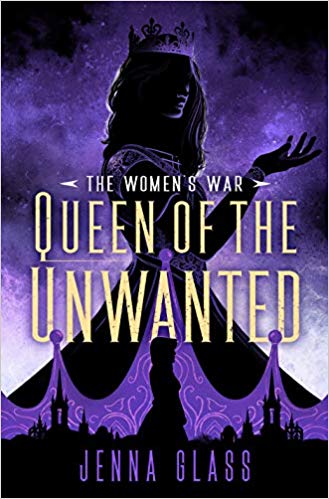 Queen of the Unwanted by
Queen of the Unwanted by 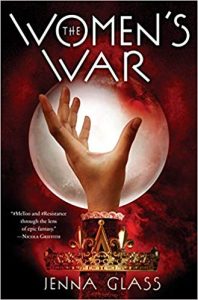 I picked up this book because for the most part I enjoyed the starting book in this series, The Women’s War. But I have to say that I found the message of that first book to sometimes be heavy-handed. Not enough to spoil my enjoyment, but more than enough to make me wonder what would happen next.
I picked up this book because for the most part I enjoyed the starting book in this series, The Women’s War. But I have to say that I found the message of that first book to sometimes be heavy-handed. Not enough to spoil my enjoyment, but more than enough to make me wonder what would happen next. Or at least, not until the very end, when the action suddenly proceeds apace, only to leave readers with multiple terrible book hangovers as they wait for the next book. Whenever it appears. I listened to 80% of this and then read the rest. The audio was interesting enough to keep me occupied while driving, but when things picked up I couldn’t stand to continue at that slow pace.
Or at least, not until the very end, when the action suddenly proceeds apace, only to leave readers with multiple terrible book hangovers as they wait for the next book. Whenever it appears. I listened to 80% of this and then read the rest. The audio was interesting enough to keep me occupied while driving, but when things picked up I couldn’t stand to continue at that slow pace.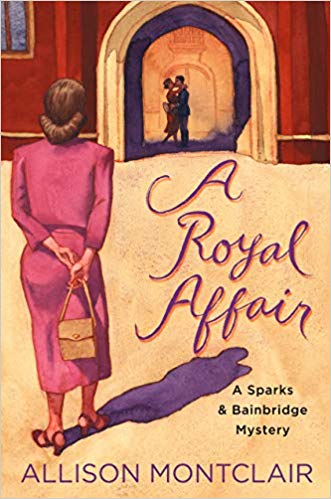 A Royal Affair (Sparks & Bainbridge Mystery #2) by
A Royal Affair (Sparks & Bainbridge Mystery #2) by 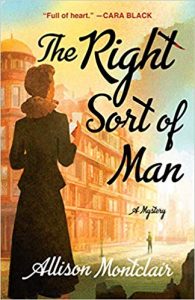 I picked this up because I absolutely adored the first book in this series,
I picked this up because I absolutely adored the first book in this series, 
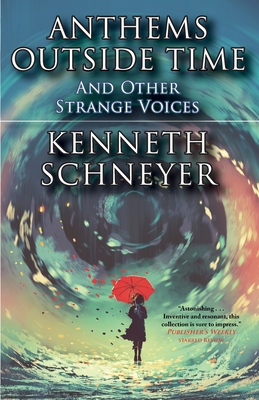 Anthems Outside Time and Other Strange Voices by
Anthems Outside Time and Other Strange Voices by  The stories in this collection, those Anthems Outside Time, are not fluffy bunnies. Most of them come from the darker corners of the imagination, and all of them are compellingly readable.
The stories in this collection, those Anthems Outside Time, are not fluffy bunnies. Most of them come from the darker corners of the imagination, and all of them are compellingly readable.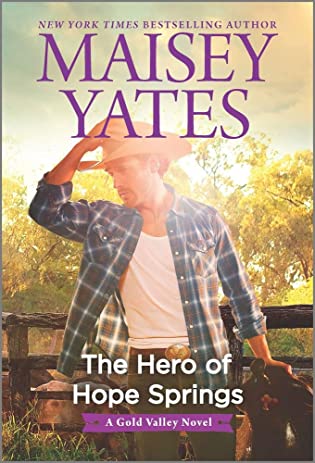 The Hero of Hope Springs (Gold Valley, #10) by
The Hero of Hope Springs (Gold Valley, #10) by 
 Current Giveaways:
Current Giveaways: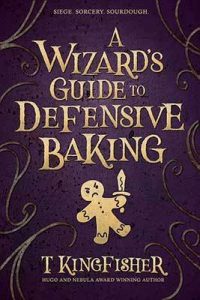 Blog Recap:
Blog Recap: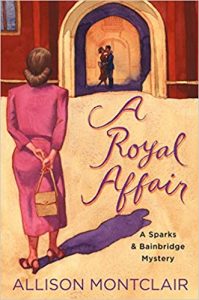 Coming This Week:
Coming This Week:

























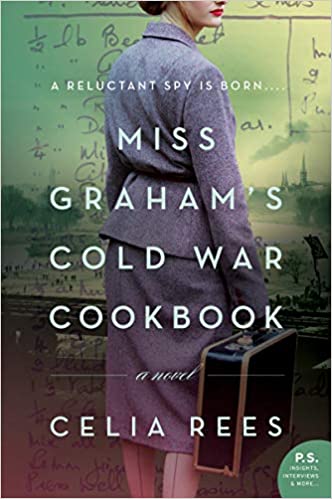 Miss Graham's Cold War Cookbook by
Miss Graham's Cold War Cookbook by 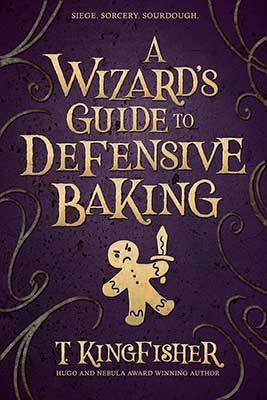 A Wizard’s Guide to Defensive Baking by
A Wizard’s Guide to Defensive Baking by 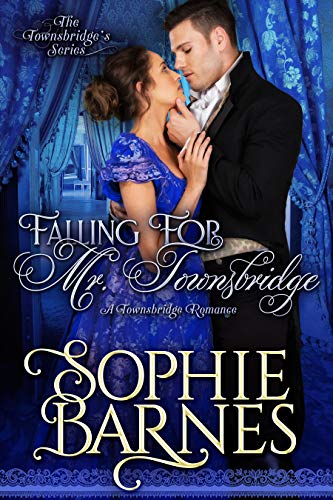 Falling For Mr. Townsbridge (The Townsbridges #3) by
Falling For Mr. Townsbridge (The Townsbridges #3) by 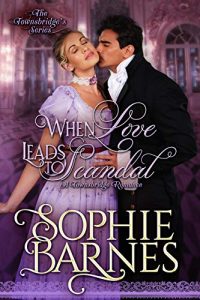 In the first book in the series, Charles Townsbridge falls for the fiancée of his best friend – and very much vice versa. They try to do the right thing and forget each other, only to eventually realize that the so-called right thing is not the best thing and marry each other anyway in
In the first book in the series, Charles Townsbridge falls for the fiancée of his best friend – and very much vice versa. They try to do the right thing and forget each other, only to eventually realize that the so-called right thing is not the best thing and marry each other anyway in  Escape Rating B: In the end, this is a lovely little romance about falling for the boss set at a time period when that possibility was fraught with even more ways that the situation can go terribly, terribly wrong. Yet it still comes out right.
Escape Rating B: In the end, this is a lovely little romance about falling for the boss set at a time period when that possibility was fraught with even more ways that the situation can go terribly, terribly wrong. Yet it still comes out right.